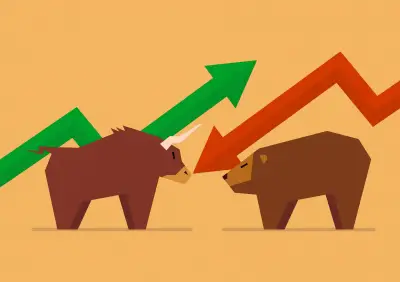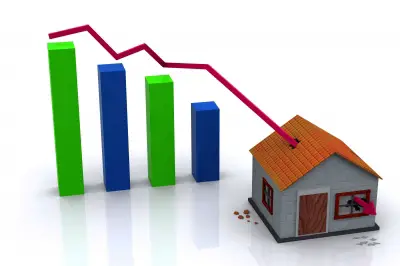To understand the reverse wealth effect first we must understand the economic concept of the “Wealth Effect”. According to Economics Help the “Wealth Effect” occurs as “Rising personal wealth has a positive effect on consumer spending”. In other words, when people feel richer they spend more.
The Impact of Increasing Wealth
As people feel richer they:
- Are more willing to spend, borrow and take risks.
- Re-mortgage and withdraw equity.
- Invest more resulting in even higher income from dividends, rent, or interest.

Image courtesy of Sira Anamwong at FreeDigitalPhotos.net
During a period of rising wealth, we may see a fall in the savings ratio (i.e. they spend more and save less because they feel confident in their income stream). Increased confidence can result in higher risk-taking which can include starting new business ventures. During a strong economy, many of these new ventures will succeed thus increasing overall wealth. Those unwilling to take risks will stagnate, actually increasing wealth inequality.
Conversely, when people feel poorer they cut back on discretionary spending and focus on affording the essentials. This is the “Reverse Wealth Effect”.
The FED hopes the Reverse Wealth Effect will Reduce Inflation
Why would the FED actually want people to feel poorer?
When people feel poorer they spend less and save more. This improves bank balances and decreases demand for discretionary items. Decreased demand means that sellers can’t raise prices thus dampening price inflation on luxuries (even though necessities may still be increasing). This will help pull down the published inflation rate.
Caveat: After creating inflation by increasing the money supply via quantitative easing (and getting the benefits of that extra money), the government then wants its citizens to bear the brunt of their tightening by feeling poorer and thus spending less on luxuries (even though they have to spend more on necessities).
In addition, when people hold onto their money longer, it reduces the velocity of money, i.e. how fast money “turns over” in the economy. The velocity of money is one factor in price inflation. A side-effect of inflation is that if people don’t have confidence that their money will hold its value, they will try to unload it as fast as possible (i.e. high-velocity), thus driving up prices overall, i.e. increasing inflationary pressure. So, the FED hopes that the reverse wealth effect will counteract the natural tendency to unload a depreciating asset, i.e., money.
Factors Causing the Wealth Effect
There are a variety of factors that will cause people to feel richer… they are:
- A strong employment outlook. If there are plenty of jobs and opportunities for advancement, people will feel richer.
- A rising stock market. If people see their 401k and other investments rising in value they will feel richer.
- Rising real estate prices. One of the major investments people have is their house. If they log in to Zillow and see the value of their house increasing they will feel richer even though they don’t actually have any additional disposable income. However, many people use this as an excuse to take home equity loans thus increasing their debt to previous levels (on a percentage basis).
Housing vs. Stock Market Wealth Effect

Image courtesy of cooldesign at FreeDigitalPhotos.net
One important study on the wealth effect of an increasing stock market versus increasing housing prices was done by Karl Case, Robert Shiller (developers of the Case-Shiller home price indices), and John Quigley. In this study, they found that changes in housing prices have a larger impact on spending decisions than changes in stock prices.
This could be because of the demographics of home ownership vs. stock ownership. Many middle-class and lower-middle-class families do not own stocks and their primary asset is their homes. So as home values rise they feel richer and take home equity loans in order to access that wealth. Those who own stocks view them as long-term savings and not something to be tapped at the slightest increase. They also understand stock volatility and that what may appear as gains today, could be losses tomorrow.
You might also like:
- What is velocity of money?
- What is Quantitative Easing?
- What is Quantitative Tightening?


Leave a Reply